Virtual Workshop Digital Government and Inclusion
In this Virtual Workshop, Brazil invites governments, international organizations and experts to discuss how digital governments can promote inclusion and foster the digital economy.
Watch the event in full
DAY 1 - JUNE 18th
DAY 2 - JUNE 19th
About
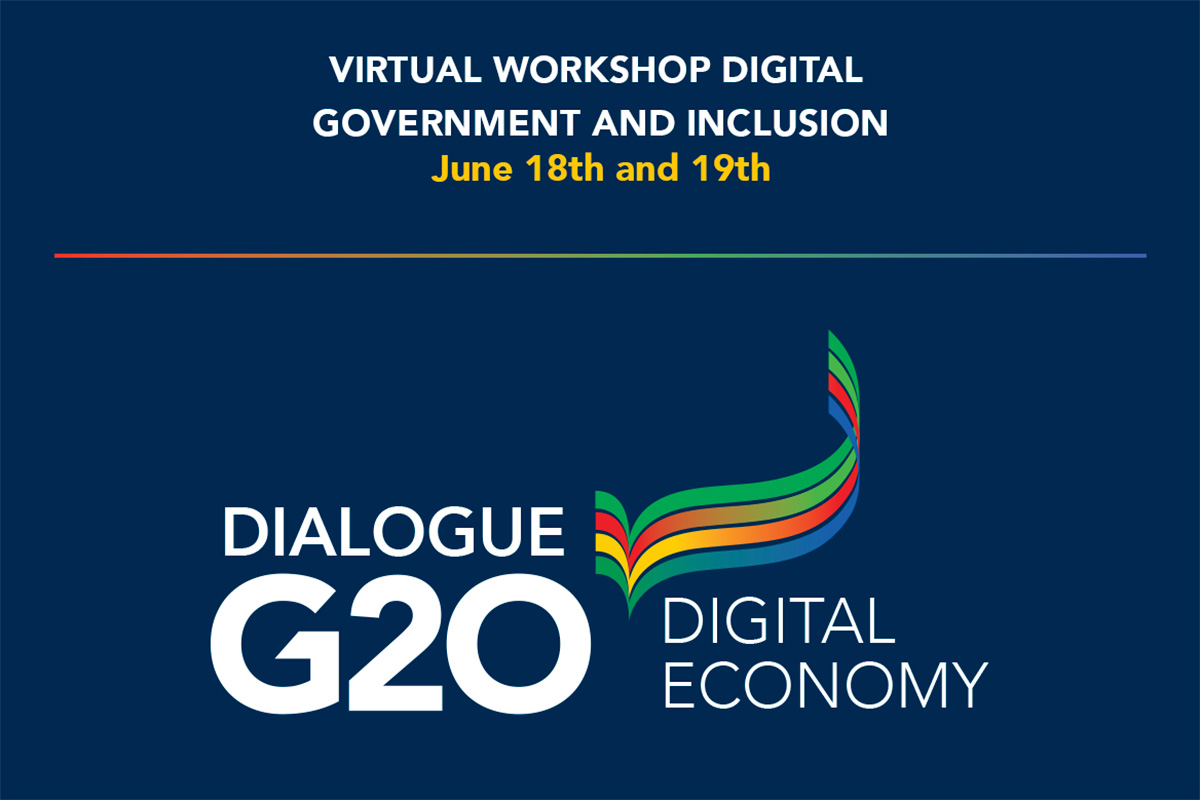
The Brazilian G20 Presidency is committed to fostering a debate on the digital economy where technology’s transformative potential becomes a force for inclusive development. Brazil's G20 priorities builds upon the successes of previous presidencies, aiming to promote an inclusive and human-centered approach that ensures visibility of the priorities of the Global South.
Under the Digital Economy Working Group (DEWG), Brazil has made digital government [i] one of its main priorities. The aim is to understand how digital government policies and services can enhance governments’ relationship with citizens, enable high-quality public services, and leverage the opportunities of the digital economy. In addition, there is also potential of Digital Public Infrastructure (DPI), such as digital identity and data sharing solutions, to be powerful tools in making public services more inclusive and user-centered.
In this Virtual Workshop, Brazil invites governments, international organizations and experts to discuss how digital governments may foster inclusion and promote the digital economy.
The Workshop aims to encourage discussions and share best practices among the international community. The primary objective is to explore innovative digital government solutions as means to address current inclusion challenges - affecting about one-third of the global population, limiting their access to essential tools - and to offer the public services needed for active participation in society.
Throughout the workshop interactive discussions and the exchange of experiences among participants will be encouraged. Collaboration with the OECD and other international organizations will be crucial to enrich the debate and help create effective policies.
The event will be a unique opportunity to strengthen cooperation among G20 members, share knowledge among the international community, and drive the development towards more inclusive, trusted, and 21st-century-adapted digital governments.
[i] Digital government refers to the use of digital technologies, as an integrated part of governments’ modernization strategies, to create public value. Source: OECD Recommendation on Digital Government Strategies.
Event date:
The event will happen on June 18th and 19th from 9a.m. to 1p.m. (UTC -3).
Themes:
Digital government; Inclusion; Digital Public Infrastructure; Digital Identification; Interoperability and Data Sharing; Data Governance; Data Infrastructure; Digital government services.
Discussion points:
The significant impact of digital government raises the following questions that will be discussed in the event:
What successful strategies, best practices and safeguards for designing and implementing digital government programs have countries implemented that prioritize inclusivity and address digital divides?
How have different countries leveraged Digital Public Infrastructures to promote digital, social and economic inclusion across different segments of their populations, including underserved groups?
How can governments and stakeholders support the governance of digital identity systems that are human-centric, secure and interoperable?
How can governments enhance the sharing and reuse of data to improve digital government services in an ethical and inclusive manner?
What are the key challenges that countries face in ensuring equitable access to public services, particularly for underserved groups, and how can the use of digital tools help improve inclusive access?
Objectives:
Identify key challenges and opportunities to leverage digital government and promote digitalization of public services for more inclusive access;
Discuss the DPI approach for promoting digital inclusion and to bridge the digital divide;
Strengthen collaboration on digital government between G20 members, international organizations and stakeholders.
Target audience:
The Virtual Workshop will bring together G20 delegates; public policy makers; public and private managers; diplomats; academics; experts interested in scientific and technological issues; officials of international organizations; investors; the Organized Civil Society, Think-Tanks and Startups.
Speakers
Alexandre Amorim
CEO of the Federal Data Processing Service (Serpro)
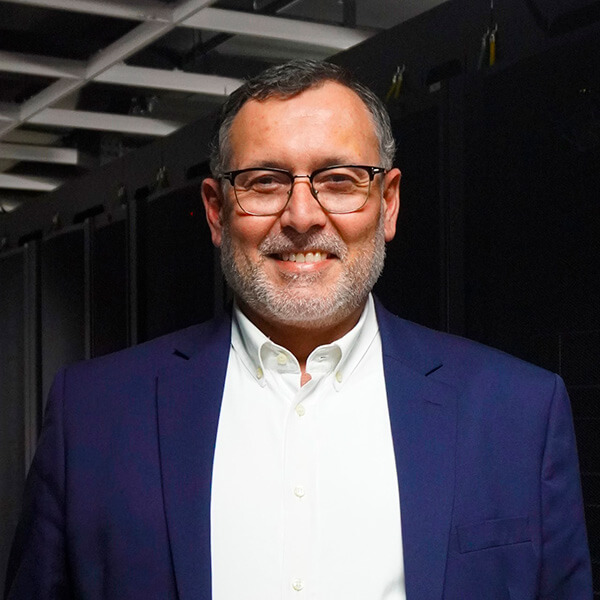
Alexandre Gonçalves de Amorim became CEO of the Federal Data Processing Service (Serpro) in February 2023. With more than 20 years of experience in the areas of corporate and government management, Amorim has led, in recent years, several Information Technology and digital transformation projects in public management.
He holds a degree in Municipal Public Management from the Foundation for Administrative Development (Fundap) and a degree in Sociology and Politics from the School of Sociology and Politics of São Paulo (FESPSP).
Barbara-Chiara Ubaldi
Head of the Digital Government and Data Unit of the OECD Directorate of Public Governance
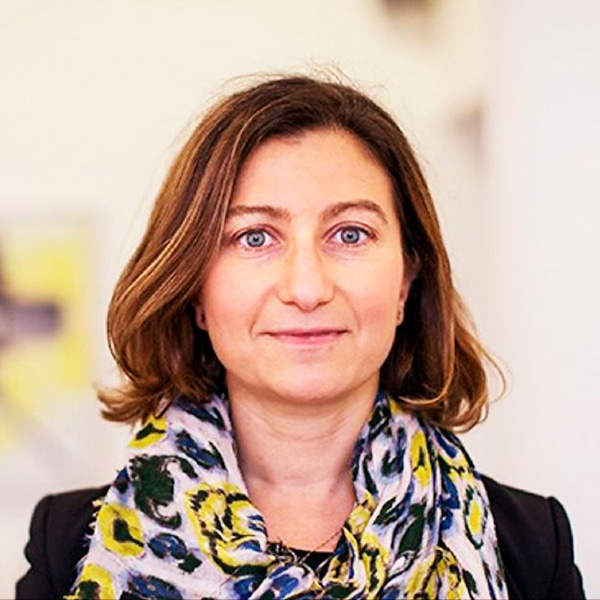
Barbara leads the digital transformation work of governments, which includes any policy or initiative that uses digital technologies and data to increase openness, efficiency and innovation in governments. She is responsible for country analyses, monitoring the implementation of the OECD Recommendations on Digital Government Strategies, Improving Data Access and Sharing, and on Digital Identity, as well as the OECD OURdata Index and Digital Government Index.
Carlos Santiso
Head of Division, Digital, Innovative and Open Government at the OECD

Carlos Santiso has devoted his career to improving lives through better governance and digital innovation, with extensive experience in public governance and development finance. He has worked in over 40+ countries in the Americas, Africa, and Europe. Carlos currently heads the Division on Digital, Innovative, and Open Government at the OECD. He previously managed the governance practices of the Development Bank of Latin America, the Inter-American Development Bank, and the African Development Bank. He also worked in government in Britain’s international development ministry and France’s Prime Minister’s office. He holds a Ph.D. in political economy from Johns Hopkins University and master’s degrees in public policy from Columbia University and the Institut d’Etudes Politiques of Paris.
Ciro Avelino
Advisor of the Digital Government Secretariat
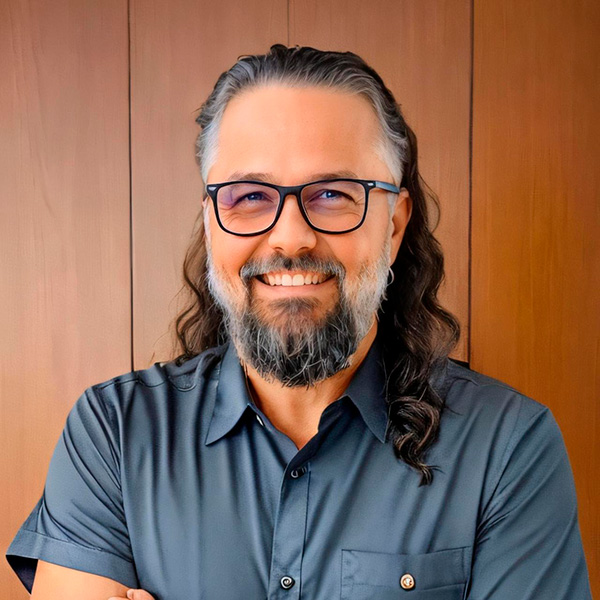
Designer and Father, since then he has been a champion for a better world. Specialist in Strategy, People and IT. Today Advisor at the Digital Government Secretariat, Caixa employee and has worked as an executive in the financial market. Responsible advocate of subversion. How? Foster connection.
David Eaves
Associate Professor of Digital Government and Deputy Co-Director of the Institute for Innovation and Public Purpose at University College London

David's courses focus on the governance of digital public infrastructure and the minimum feasible knowledge that public administrators need to have about technology to be effective in a digital age. He is a co-founder of the Teaching Public Service in a Digital Age, which seeks to increase the number of civil servants receiving public administration skills from the digital age.
Elsa Pilichowski
Director of the Directorate for Public Governance at the Organization for Economic Cooperation and Development
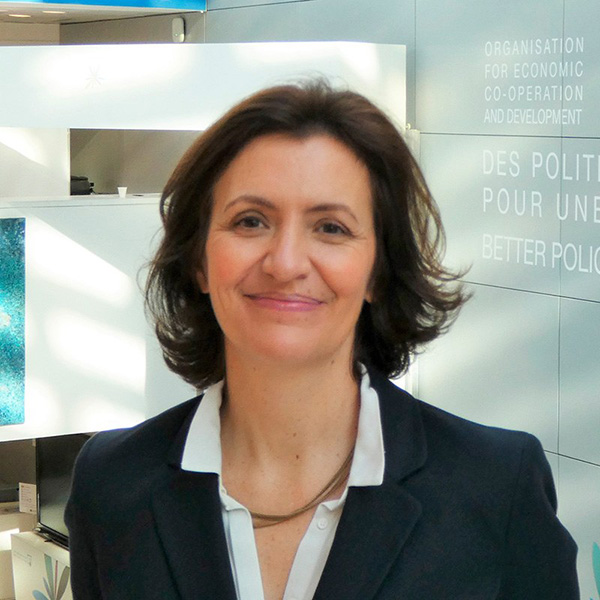
She has more than 20 years of experience in public governance in OECD and partner countries. She joined the OECD in 2000 in the Public Governance Directorate, where she worked, until 2012.
Pilichowski took up the post of the deputy head of the unit for the Eurasian region for the OECD's Global Relations Secretariat and the Office of the Secretary-General in 2014, where she was an advisor. Before joining the OECD, Elsa Pilichowski held positions at the World Bank.
Francisco Gaetani
Extraordinary Secretary for the Transformation of the State
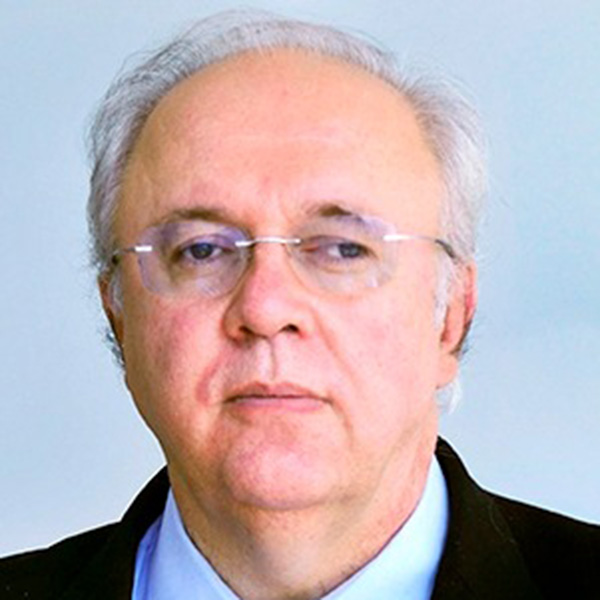
Currently, he serves as Extraordinary Secretary for the Transformation of the State, at the Ministry of Management and Innovation in Public Services (MGI). He holds a PhD in Public Administration and a Master's degree in Public Administration and Public Policy from the London School of Economics and Political Science (LSE), a Specialist in Public Policy and Government Management (EPPGG) and a degree in Economic Sciences from the Federal University of Minas Gerais (UFMG). He worked at the United Nations Development Program (UNDP), having held, among others, the position of responsible for the governance area and general coordinator of UNDP actions in Brazil. In the Federal Public Administration, he held positions of Executive Secretary, Deputy Executive Secretary and National Secretary of Management of the Ministry of Planning. He was also Executive Secretary at the Ministry of the Environment and chaired the National School of Public Administration (ENAP).
Frank Leyman
Head of International Relations, Belgian Digital Transformation Office & Chair of the OECD Working Party of Senior Digital Government Officials

Frank Leyman holds a master's degree in marketing and in Applied Economics from the University of Mons in Belgium. He spent half of his career in private sector (IBM Belgium, the Belgian Telecom operator Belgacom and a smart card company Proton World) before joining public sector. Since mid 2005 he works for the Digital Transformation Office within the Federal Public Service Policy & Support (BOSA) where he heads International Relations as well as the relations with European Commission, OECD and the World Bank.
Hudson Mesquita
Director of Digital Identity
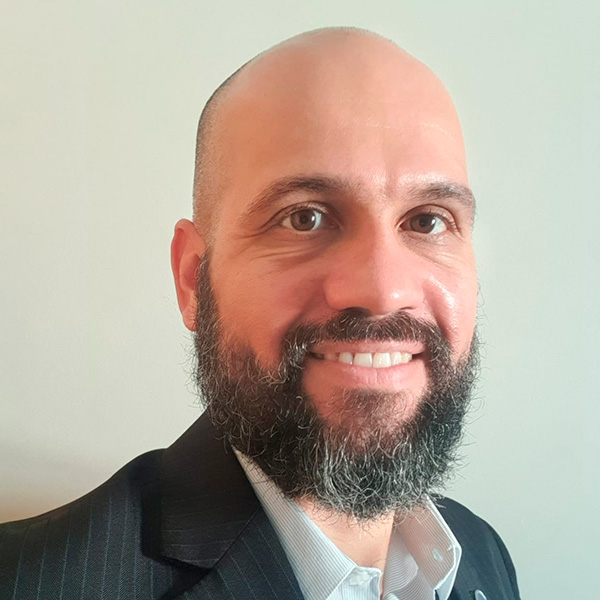
Holds a master's degree in public administration from FGV. Has been working for 14 years in digital government initiatives, having coordinated several digital transformation projects, especially in the areas of accessibility, interoperability, data governance and digital identity. He is currently Director of Digital Identity at the Digital Government Secretariat, responsible for the gov.br digital identification and authentication platforms.
Luanna Roncaratti
Deputy Secretary of Digital Government
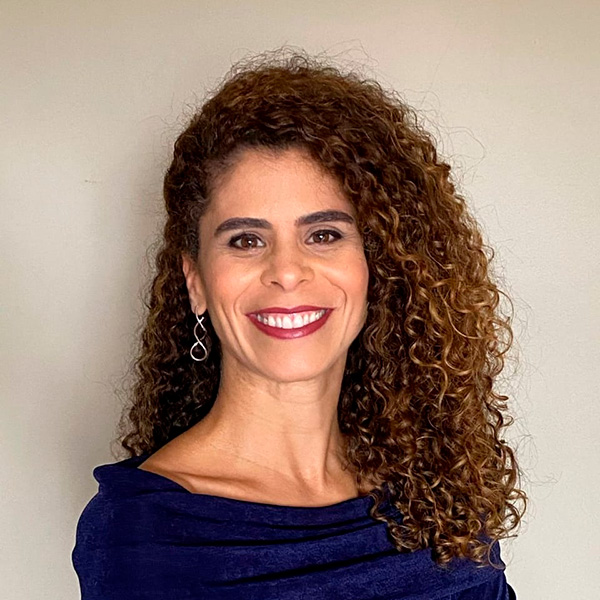
PhD in Political Science from the University of Brasília and Specialist in Public Policy and Government Management since 2006, Luanna has been working in the innovation and digital technologies sector since 2013. Is currently acting as Digital Government Deputy Secretary at the Ministry of Management and Innovation in Public Services. In 2020, won the Public Spirit Award in the Digital Government category.
Priya Vora
CEO of the Digital Impact Alliance
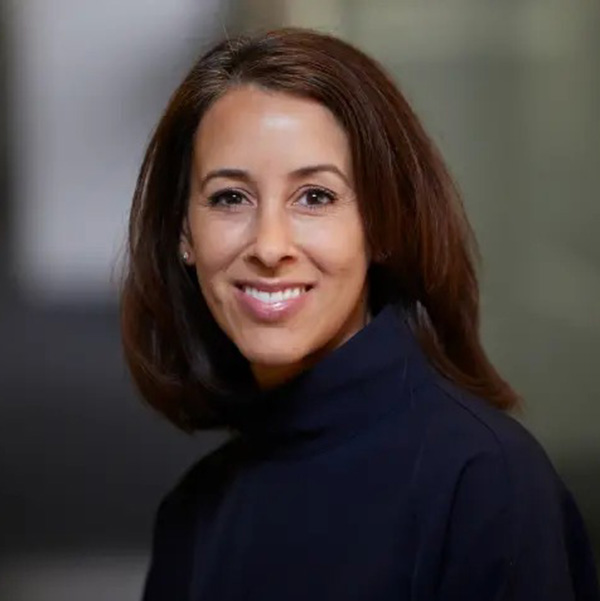
Priya is the CEO of the Digital Impact Alliance, and has over 20 years’ experience working to ensure the world’s most marginalized communities are empowered with political voice and economic opportunity. A widely recognized and respected leader in global development, Priya has forged strategic partnerships and networks with some of the biggest development champions across the globe and has a proven track record of excellence in designing interventions to advance financial inclusion and digital development.
Natalia Teles
Deputy President of the National School of Public Administration
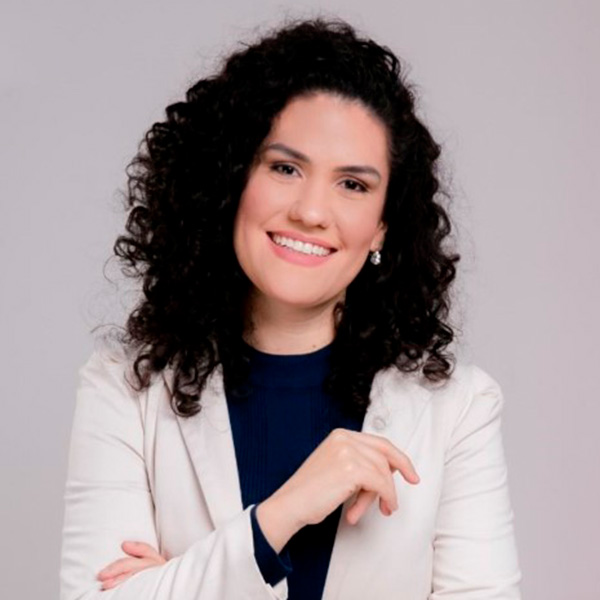
Executive Director at the National School of Public Administration - Enap. He has more than 20 years of experience in the public sector. Psychologist, holds a Master Degree in Education from The Open University. Her performance in public service is marked by the development of new leadership and the strengthening of institutional governance. Elected in 2024 by Apolitical as one of the 35 most pioneering people in the world in the field of talent development. In 2021, received the Public Spirit Award for her work at the head of the Virtual School of Government - EV. G, which has 4 million users, 750 distance learning courses and is present in several countries around the world.
Pramod Varma
Co-chair at Center for Digital Public Infrastructure (CDPI)
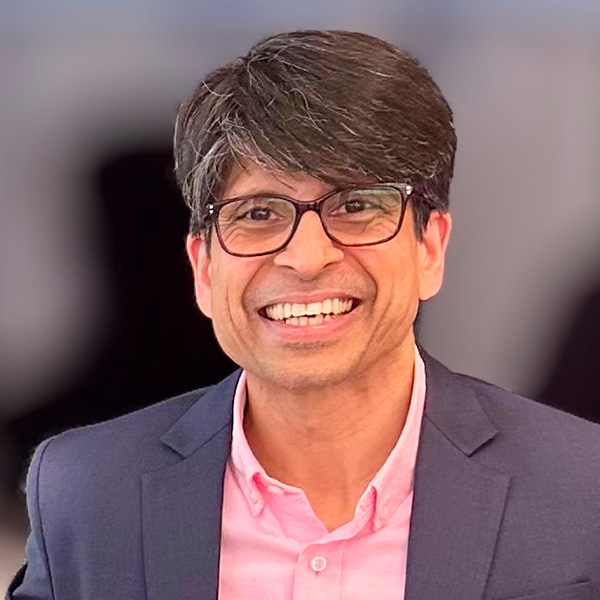
Pramod Varma has been the Chief Architect of most of India’s Digital Public Infrastructure (DPI) efforts starting with Aadhaar - India’s unique ID system that covers 1.4 Billion people; eSign - an interoperable digital signature protocol; DigiLocker - digital credentialing and wallet system in India which is currently used by 250 million people having nearly 6.5 billion credentials; and UPI - the unified real time payment system that was launched in 2016 currently doing 13.5 Billion transactions a month.
He is the co-chair at the global Center for DPI (CDPI), and an advisor to many entities and initiatives in India and globally.
Rodrigo Assumpção
CEO of Dataprev
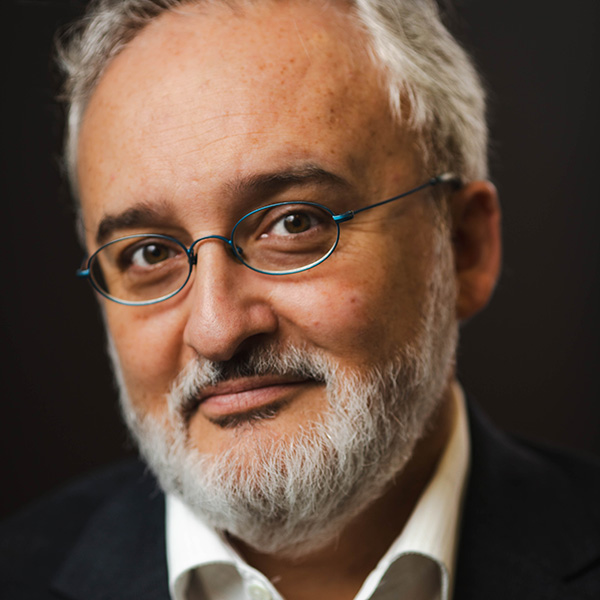
With more than 30 years of experience on the topic of digital transformation and best practices of technological innovations for public management, Rodrigo Ortiz D'Avila Assumpção was at the helm of Dataprev from 2008 to 2017, where he led a profound transformation in the company, which resulted in an increase in profitability and efficiency.
He was a consultant specialized in ICT management and digital modernization with international organizations such as the World Bank and the International Social Security Association (AISS).
Rogério Mascarenhas
Secretary of Digital Government
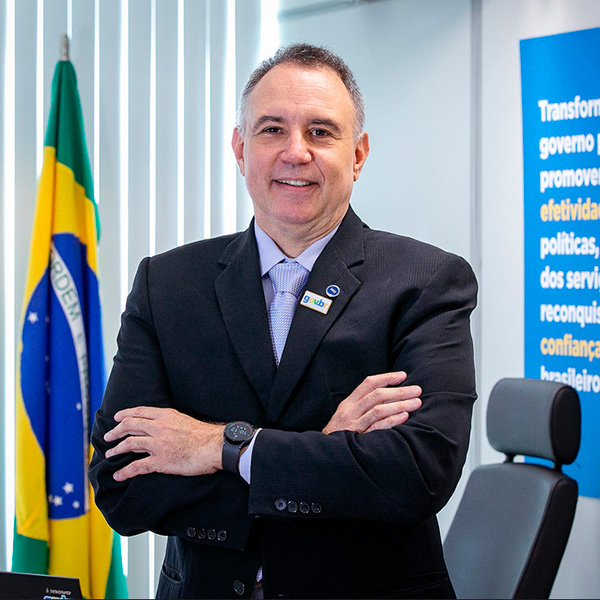
Rogério Mascarenhas is a Specialist in Business Management and Information Technology, Electronic Government and Data Science and Big Data. He has 25 years of experience in the public sector, having worked at INSS, Dataprev and the Brazilian Federal Revenue Service. Professional with experience in the implementation of complex projects in information technology, technological innovation, strategic planning, organizational remodeling, operational restructuring, tax audit and corporate governance. He is currently Secretary of Digital Government at the Ministry of Management and Innovation in Public Services.
Adam Lebech
Deputy Director General in the Danish Agency for Digital Government
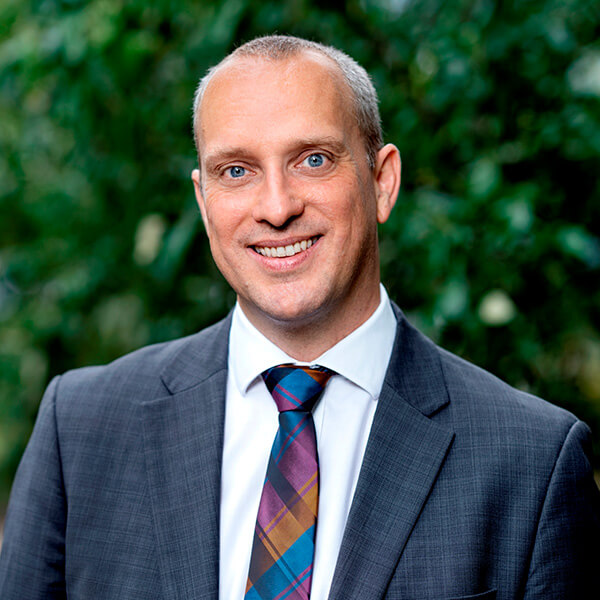
Adam Lebech is Deputy Director General in the Danish Agency for Digital Government, which is responsible for the implementation of digital government policy and the development and operations of key government IT systems. He is, among other things, responsible for the national eID system that works with banking and government services in Denmark as well a government digital communications and access to services for citizens and businesses. He has previously worked as the managing director of the Danish ICT and Electronics Federation and held senior management positions at various ministries and agencies, working in the fields of digital government as well as IT and Telecoms policy since 2001. Adam Lebech holds a master’s degree in political science from Aarhus University.
Esther Dweck
Minister of Management and Innovation in Public Services
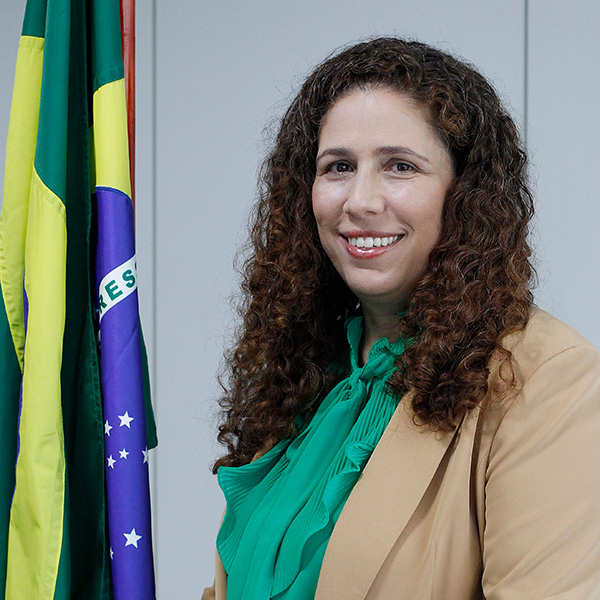
Esther Dweck is Minister of Management and Innovation in Public Services. Associate Professor at the Institute of Economics of the Federal University of Rio de Janeiro (IE/UFRJ). PhD in Economics from the Federal University of Rio de Janeiro (UFRJ) - during her doctorate period she studied at the Scuola Superiore Sant'Anna, in Pisa, Italy. Between 2011 and 2016, she worked at the Ministry of Planning, Budget and Management, where she was Head of the Economic Advisory and Federal Budget Secretary. He was deputy head of analysis and monitoring of government policies of the Chief of Staff. She was also a parliamentary aide to the Senate in 2016-2017.
Jutta Treviranus
Director of the Inclusive Design Research Centre (IDRC) and professor in the faculty of Design at OCAD University in Toronto
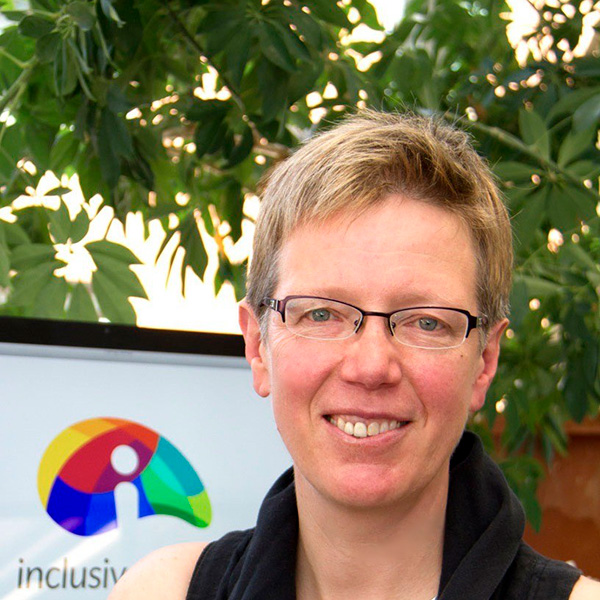
Jutta established the IDRC in 1993 as the nexus of a growing global community that proactively works to ensure that our digitally transformed and globally connected society is designed inclusively. Dr. Treviranus also founded an innovative graduate program in inclusive design at OCAD University. Jutta is credited with developing an inclusive co-design methodology that has been adopted by large enterprise companies such as Microsoft, as well as public sector organizations internationally. Jutta has coordinated many research networks with and by people with disabilities. Jutta was recognized for her work in AI by Women in AI with the AI for Good - DEI AI Leader of the Year award as well as by Women in AI Ethics. She is the chair of the Accessible and Equitable Artificial Intelligence standards committee for the Accessible Canada Act.
Renan Gaya
Director of Data Infrastructure
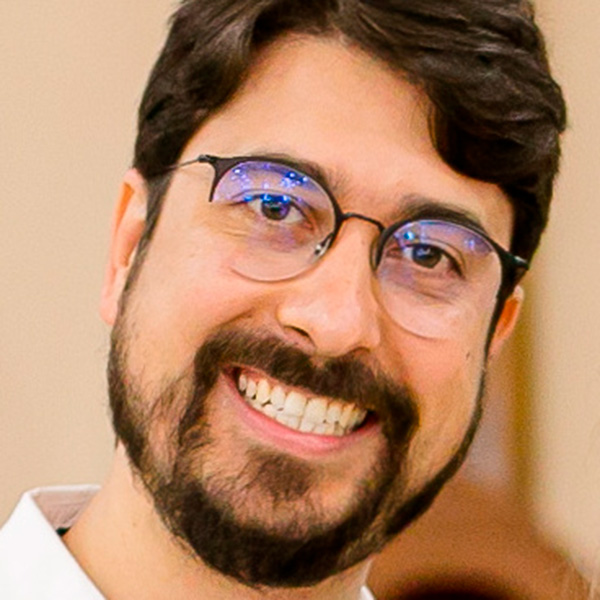
Renan Gaya is director of data infrastructure at the Department of Digital Government in Brazil, where he has been working for 5 years to promote the intelligent and secure use of data in the public service, through standards and programs that strengthen governance, interoperability and data protection in public bodies and entities. He is the current president of the Central Committee for Data Governance, a collegiate body that defines rules on data sharing within the scope of the Federal Executive Branch. He is also a member of the Steering Committee of the National Open Data Infrastructure. He is a business administrator, has a postgraduate degree in software engineering and is a planning and budget analyst for the Federal Government.
Morten Meyerhoff Nielsen
EGOV Adviser and Research Line Coordinator at the United Nations University

Dr. Morten Meyerhoff Nielsen is an EGOV Adviser and Research Line Coordinator at the United Nations University, Operating Unit for Policy-Driven Electronic Governance, an international think tank on digital transformation of the public sector in Portugal. Over the past two decades he has work with partners in more than 40 countries on all continents. With key in-depth insight of potential and challenges of the digital transformation of the public sector and society at large Morten works in the intersection of technology, process and organizational re-engineering to increase service efficiency and user-friendliness, transparency and inclusiveness of public services, and user engagement in both continues service improvement, service and policy design.
Alessandra Lustrati
Head of Digital Development in the UK Government’s Foreign, Commonwealth & Development Office
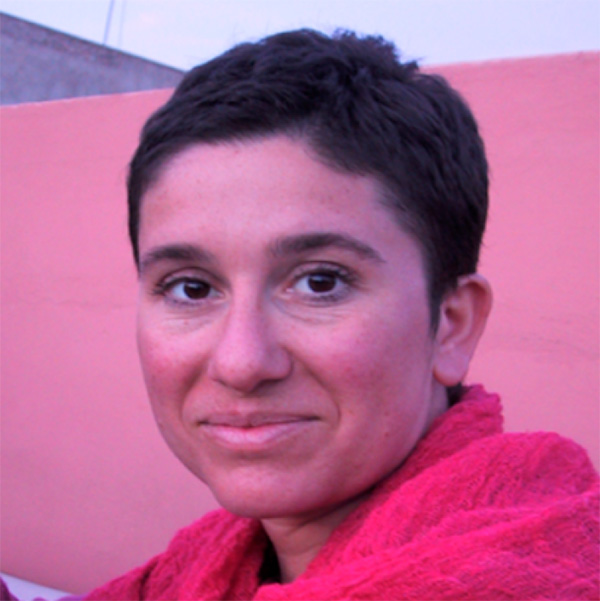
Alessandra leads the team responsible for the Digital Development Strategy (2024-2030) and oversees the global Digital Access Programme. Her work is focused on supporting the inclusive, responsible and sustainable digital transformation of developing and emerging countries. Alessandra is a development economist by background, and an accredited Senior Private Sector Development Adviser within FCDO. Before joining the UK Government, Alessandra worked with the United Nations, the European Commission, and in the non-profit and private sectors - with an emphasis on inclusive and sustainable economic growth, and a deep interest in the role of digital technologies for the reduction of poverty and inequality. She has lived and worked extensively across Africa, Asia and Europe, and speaks seven languages.
Andrea Cabello
Economy professor and consultant
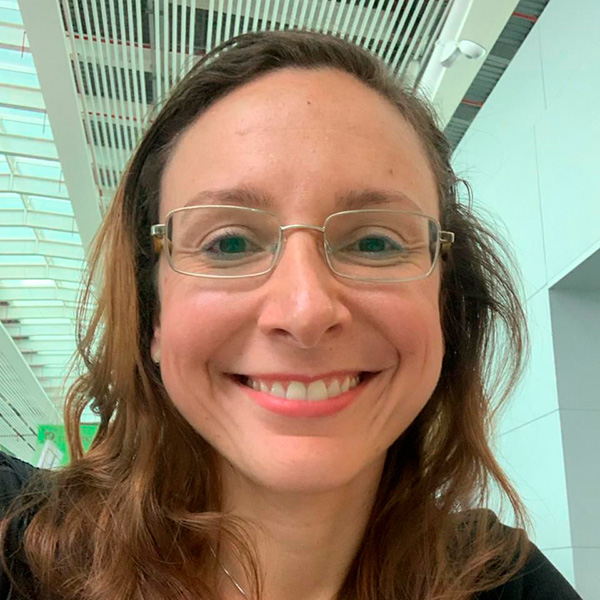
Since 2012, she has been a professor at the Department of Economics at University of Brasilia, in Brazil. She has published more than 40 papers, in several renowned national and international journals, on various topics such as education, innovation, the space sector, the electricity sector, energy transition, electoral behavior, the history of economic thought, social organizations and the determinants of scientific research. She has supervised 100+ students (graduate and undergraduate) on various topics on economics, social sciences and public administration. She was a visiting professor at the University of Antwerp in Belgium, the University of Cantabria in Spain and the Prague Economic School in Czechia. She also managed the University of Brasilia department responsible for student’s statistics and data and has worked in projects for international organizations on topics such as industry 4.0, education and digitalization.
Camila Medeiros
Director of Innovation at the National School of Public Administration
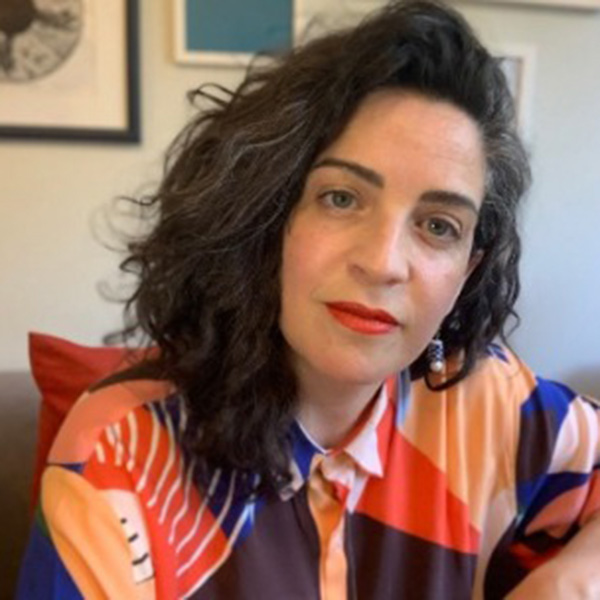
Designer and public servant since 2008. Graduated in Communication from the University of Brasília (UnB), specialized in Public Management at UnB and in Design and Communication at Coco International School in Spain. As a public servant at the National Health Surveillance Agency (Anvisa), she co-founded the LABiVISA Innovation Laboratory. She is currently the Director of Innovation at GNova/Enap, where she was responsible for developing gov.br/desafios and the school's Open Innovation Strategy. She is a lecturer in the Public Administration undergraduate program at Fundação Getúlio Vargas. She is one of the founders of the iGOVnights movement, a collective of public servants promoting innovation in government.
Gail Hodges
Executive Director at the OpenID Foundation
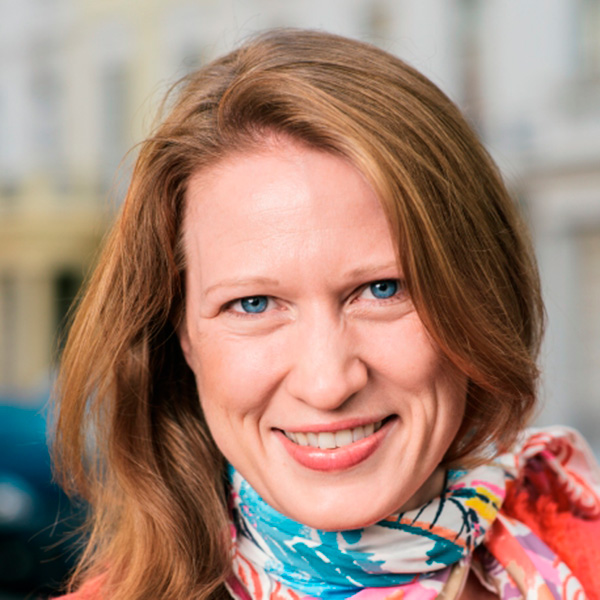
Gail Hodges joined the OpenID Foundation as Executive Director in May 2021. She is also the Founder of the Future Identity Council, a global non-profit that seeks to empower citizens with mobile identity credentials that are private, secure, and easy to use.
Guilherme Almeida
Program Director at the Secretariat for State Transformation
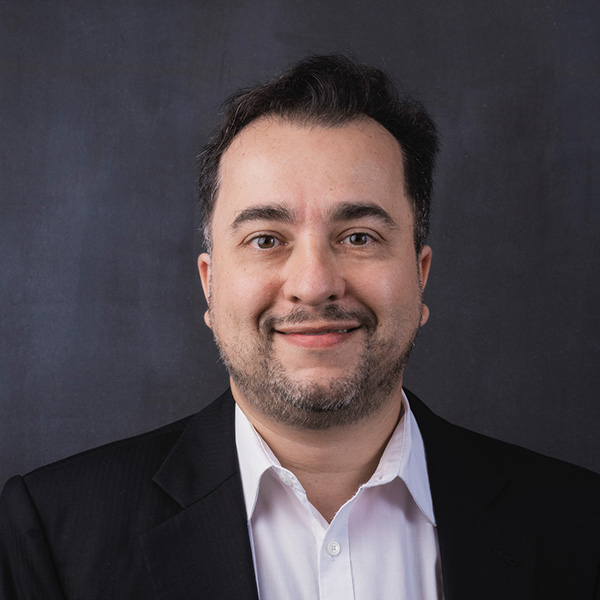
Guilherme Almeida de Almeida is a Program Director at the Secretariat for State Transformation at the Brazilian Ministry for Management and Public Service Innovation. He is a lawyer, researcher, and member of the Brazilian Senior Executive Service, with a career focused on innovation and ICT law and policies, with an emphasis on public sector innovation. He holds a J.D. from University of São Paulo (2000), and a master’s in public administration from Columbia University (2015). He has held several appointed positions at the Brazilian Presidency, Ministry of Justice and National School of Public Administration.
José Luiz Esteves
Global Chair of the SDG 4 and consultant
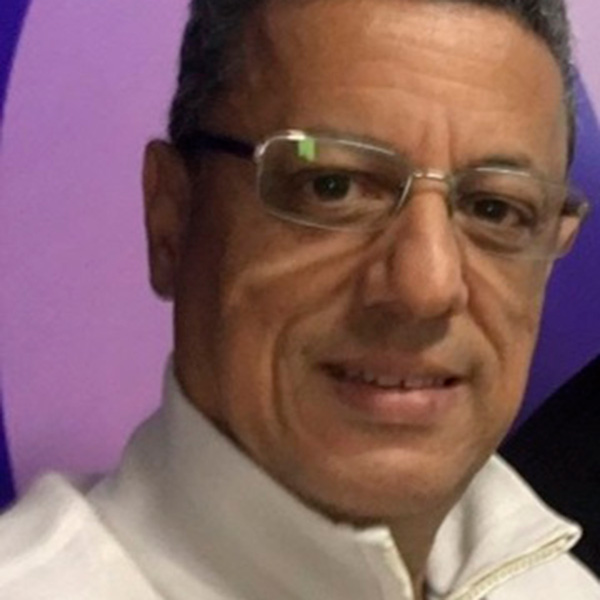
PNUD Advisory at DEWG/G20; Global Chair of SDG 4 by GSFN-UK; Professor of MBAs at PUC-PR with over twenty five years of professorship in the Executive Training Programs of Foundation Getúlio Vargas in Brazil and other HEIs; Post-doctorate in Innovation for Organizational Sustainability/ESG at PPAD/PUC-PR. Doctor of Business Administration, MBA and degrees in PPBL Problem and Project Based Learning, Social Communication and Education; Researcher member of the ABES Think Tank and the ICE/ Instituto de Cidadania Empresarial Academy; International Diploma in Urban Management and Sustainable Development GUDS at UNIBE/UN-CEPAL /UN-HABITAT/ World Bank, and in Governance and Public Policy at GWU-FGV/CAF.
José Inostroza
Director of Digital Government in Chile and President of the Gealc Network
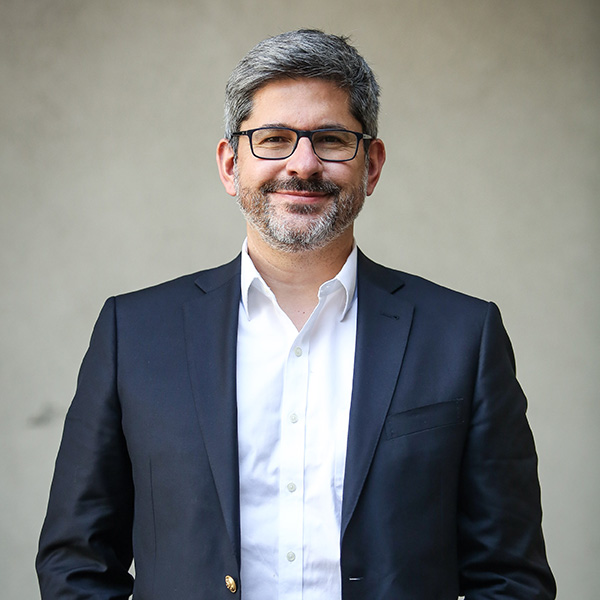
Lawyer from University of Chile and Master in Management and Public Policies, Industrial Engineering, from University of Chile. He was a researcher, consultant and associate at Centro de Sistemas Públicos (CSP) in Industrial Engineering from University of Chile. Founder and first director of the Public Sector Modernization Programme of the Ministry of Finance (2015-2018), at present Modernization Secretariat, from where he contributed to the development of modernization and digital transformation policies such as Digital Transformation Law (21.180) and Government Laboratory in Public Innovation, among others. He is part-time professor at University of Chile, University Alberto Hurtado, University of Concepción and visitor at Catholic University of Peru. He has several academic publications, book chapters and articles. Currently he is the director of Digital Government Secretariat at the Ministry of Finance.
Kleber Canuto
Founder of LinkedData and consultant

PhD in Strategy and Organizations from UFPR. Founder and Director of Research and Analytics at Linked Data. UNDP consultant on Data Sharing and Digital Government. More than 15 years of experience in Big Data and Data Science projects applied to market and competitive intelligence, during which time he has worked with different organizations in the public and private sectors.
Lincoln Moura
Former president of the Brazilian Society of Health Informatics and consultant

Lincoln de Assis Moura Jr is an electronic engineer with a Master of Science from COPPE/UFRJ and PhD from Imperial College London, with extensive experience in technology applied to medicine and health. He has been president of several national and international scientific societies in health informatics, including the Brazilian Society of Health Informatics and the International Medical Informatics Association (IMIA). He is an independent consultant on digital health strategies, having actively participated in drafting the WHO Global Digital Health Strategy and the Digital Health Strategy for Brazil, both published in 2021. He currently supports the GOV.BR in Digital Identity initiatives as part of the G20.
Lorrayne Porciuncula
Executive Director and Co-Founder of the Datasphere Initiative
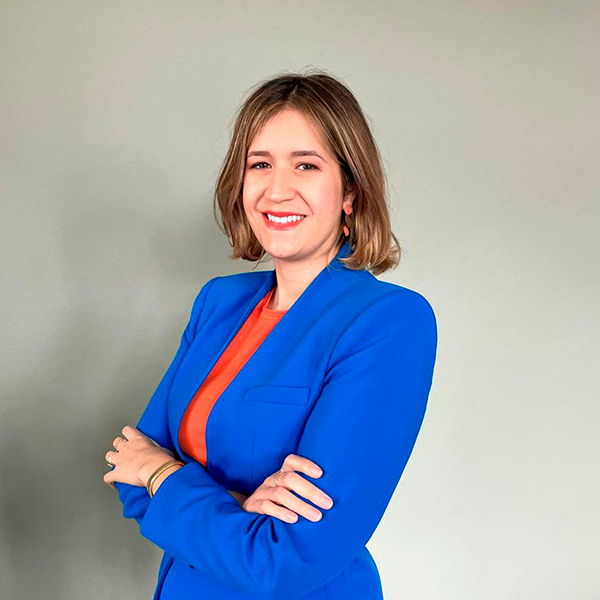
Lorrayne Porciuncula is the Executive Director and Co-Founder of the Datasphere Initiative, an international non-profit foundation with a mission to responsibly unlock the value of data for all. She is an internationalist and economist, with over a decade of public policy experience on data and Internet governance and communications infrastructure regulation.
Recent publications Lorrayne has co-authored include the reports: We Need to Talk About Data (2021), Datasphere Governance Atlas (2022) and Sandboxes for Data: creating spaces for agile frameworks across borders (2022).
Mariano Lafuente
Principal State Modernization Specialist at the Inter-American Development Bank
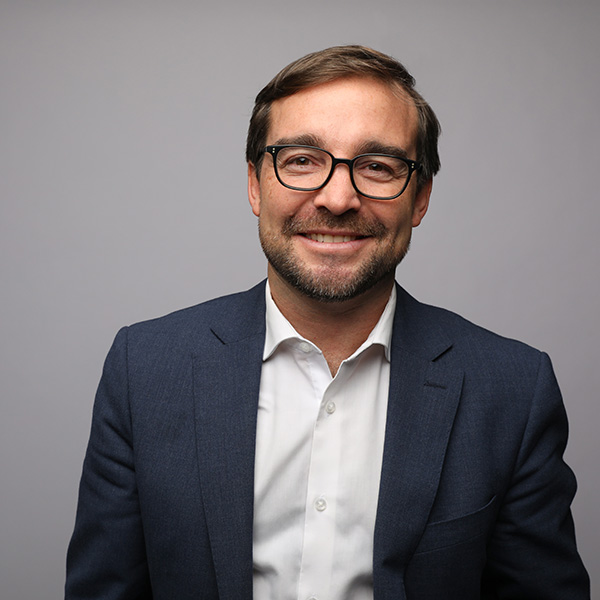
Mariano Lafuente is a Principal State Modernization Specialist at the Inter-American Development Bank (IDB). Based in Brasilia, he coordinates the Bank’s program in Brazil on digital government, public management, and transparency. He leads the credit line Brazil More Digital, for US$ 1 billion, among other programs. Previously, he was a public management specialist for Latin America and the Caribbean at the World Bank. He holds a degree on political science from Argentina’s Catholic University, and a masters degree in Public Policy from University of Maryland-College Park.
Mohammed Bin Taliah
Chief of Government Services of the United Arab Emirates Government
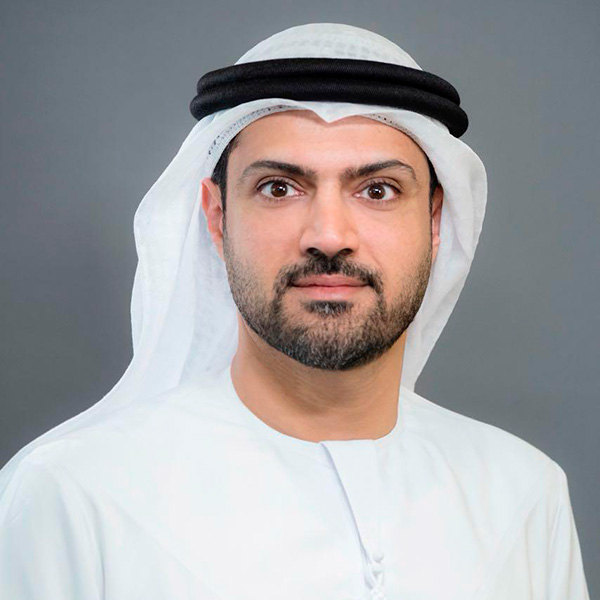
His Excellency Mohammed Bin Taliah is the Chief of Government Services of the United Arab Emirates Government. His Excellency plays a pivotal role in elevating the standards of the UAE government services, through his leadership of the 'Emirates Government Service Excellence Program' (EGSEP). This flagship program is dedicated to enhancing the quality, standards and efficiency of government services enriching the customer experience across all delivery channels. Throughout the years, the program has designed and launched a number of instrumental design & development, rating & assessment initiatives and programs including the Global Star Rating, The Mystery Shopper, Services 2.0, Customer Pulse and the prestigious Annual award, GovTech Prize, among many others. Such programs were instrumental in the success and evolution of the UAE Government Services.
Peter Kusek
Global Programs Manager at the Digital Development Global Practice of the World Bank

Global Programs Manager at the Digital Development Global Practice of the World Bank, focusing on digital public infrastructure, data governance, and digital industry and skills. Previously, he was the Global Lead for the Applied Research Program on Investment Climate and the managing editor of the Global Investment Competitiveness Report series. With over 20 years of experience in international development, Peter has worked with more than 50 governments, particularly in Sub-Saharan Africa, East Asia, South Asia, and Eastern Europe. His publications have been cited in The Economist, Wall Street Journal, New York Times, and Bloomberg, among other media outlets. Before joining the World Bank Group, Peter worked on small business development in Bangladesh, microfinance in Tanzania, and privatization at the Ministry of Finance of the Czech Republic. He was also a Program Manager at the Center for Strategic and International Studies, a Washington-based foreign and security policy think tank.
Rafael Figueiredo
Secretary of Science, Technology and Innovation of Recife
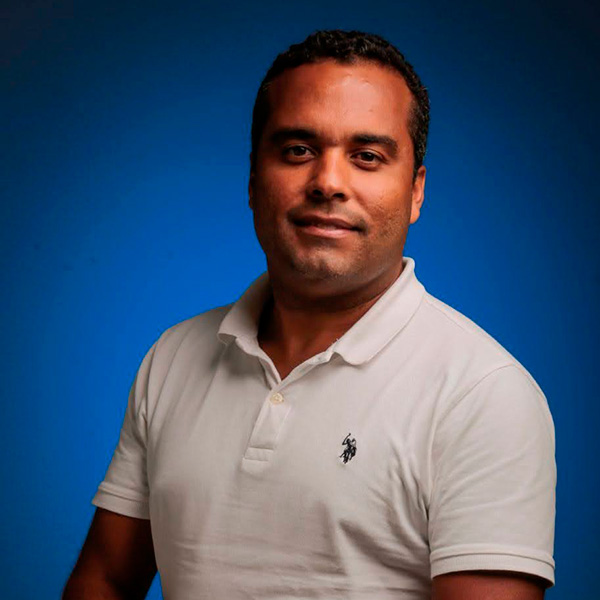
Rafael Figueiredo Bezerra is currently Secretary of Science, Technology and Innovation, Counselor of Porto Digital. He is a State Attorney and has held the positions of Comptroller General and Attorney General. A Public Entrepreneur.
Sarah Lister
UNDP’s Head of Governance

Sarah Lister is UNDP’s Head of Governance and oversees policy and programme support to its governance portfolio globally, including electoral cycle support, parliamentary development, anti-corruption, information integrity, digital governance, legal identity, youth empowerment and disability inclusion. She has more than 25 years’ experience working on democratic governance, including civic engagement, media and communication, social accountability, public administration reform and governance measurement. From 2015-2019 she was the Director of UNDP’s Oslo Governance Centre where she led the team bridging research, policy and practice on governance and peacebuilding in transitional contexts, with a particular focus on SDG16. Among other positions, she has also worked for BBC Media Action, the Afghanistan Research and Evaluation Unit in Kabul and the Institute of Development Studies, UK. She has lived and worked in Asia, Africa, Latin America and Europe. Sarah holds a PhD and MSc in Social Policy from the London School of Economics, and a BA in History from Cambridge University, UK.
Amandeep Gill
UN Tech Envoy
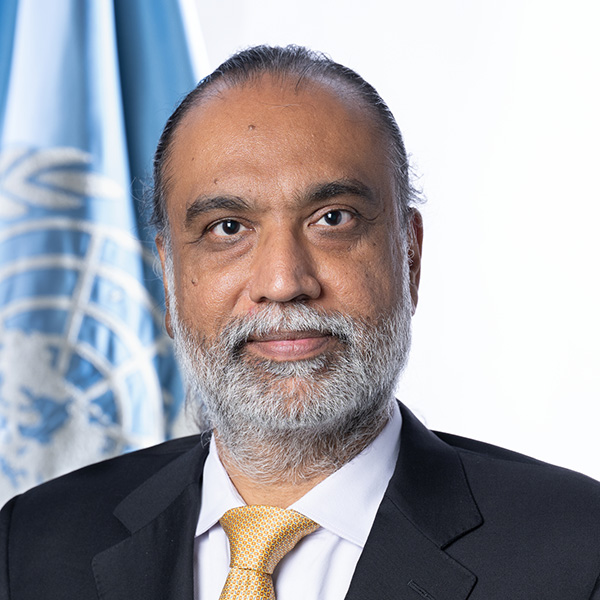
Mr. Amandeep Singh Gill was appointed by the United Nations Secretary-General as his Envoy on Technology in June 2022 and joined the Secretary-General’s senior leadership team as Under-Secretary General in mid-July 2022.
A thought leader on digital technology, Mr. Gill has a deep knowledge of digital technologies coupled with a solid understanding of how to leverage the digital transformation responsibly and inclusively for progress on the Sustainable Development Goals.
Dongyub Baek
Principal Manager at the National Information Society Agency in Korea

Dongyub Baek is a Principal Manager at the National Information Society Agency (NIA) in Korea, where he leads international cooperation initiatives in open data by sharing Korea’s experiences and lessons learned. Recently, he presented Korea’s strategies at workshops in Bhutan and Vanuatu, organized by UNDESA, aimed at enhancing data governance capacity.He also served as the head of the Korea-Tunisia Digital Government Cooperation Center (DGCC) from 2021 to 2023. During his tenure in Tunis, he contributed to the development of Tunisia's digital government. He oversaw initiatives designed to share Korea’s digital government expertise, focusing on interoperability, digital government services, infrastructure, and more.
Jeanette Morwane
Chief Director of South Africa´s ICT Innovations and Digital Government
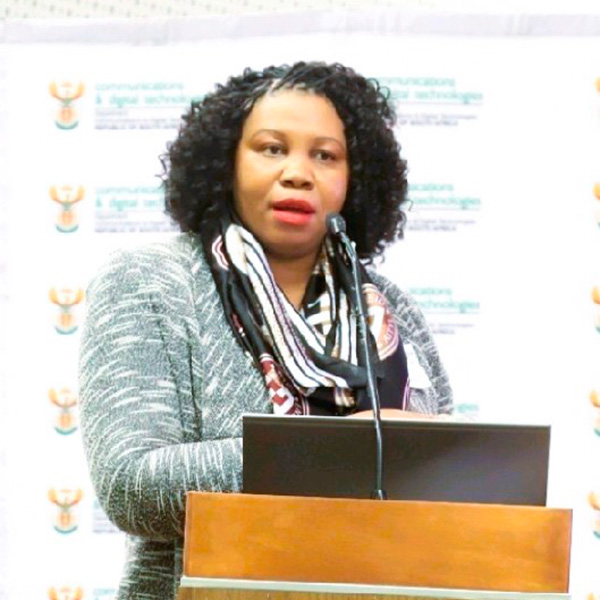
Jeanette Morwane is currently the Chief Director: ICT Innovations and Digital Government at the Department of Communications and Digital Technologies (DCDT) in South Africa and also served on the board of State Information Technology Agency (SITA) as a government representative. She is an ICT and innovation executive with more than 16 years’ experience at operational, tactical and strategic management levels. Accumulated substantial experience, knowledge and understanding of ICT governance, technology innovation and commercialization, innovations systems development, policy formulation, strategic planning, programme management and human capital development.
Luciano Mazza de Andrade
Director of the Department of Science, Technology, Innovation and Intellectual Property and DEWG Chair
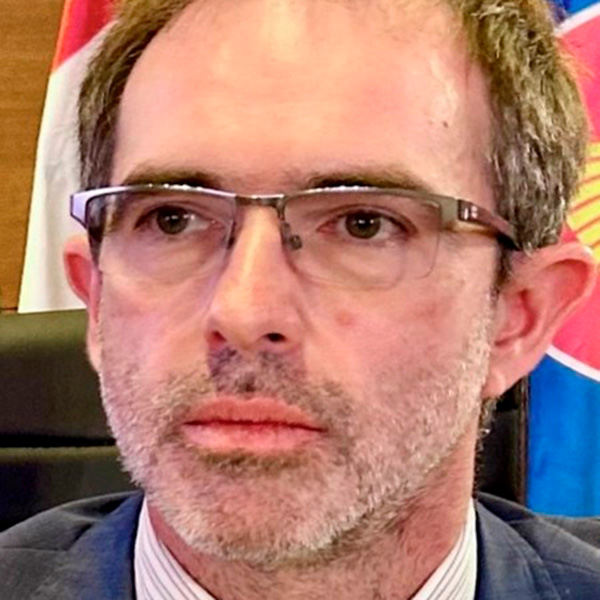
Luciano is the Director of the Department for Science, Technology, Innovation and Intellectual Property at the Brazilian Ministry of Foreign Affairs, with responsibilities on digital economy and internet governance issues. He is the chair of the Digital Economy Working Group under Brazil´s Presidency of the G20. Previously, he was Deputy Head of Mission at the Embassies of Brazil in Lisbon (2019-2021) and in Canberra (2016-2019). In his career in the diplomatic service, he has worked extensively with trade and regional integration, including as head of the Division for Extra-Regional Trade Negotiations and as General Coordinator for WTO Dispute Settlement, in Brasilia, and as head of the Trade Policy Section of the Brazilian Mission to the European Union, in Brussels. He was awarded a Masters in European Law (LLM) at the LSE and defended a thesis of High Studies on Mercosur’s institutions at the Brazilian Diplomatic Academy.
Adrienne Schmoeker
Senior Fellow, The GovLab

Adrienne Schmoeker is the former Deputy Chief Analytics Officer for the City of New York. During her tenure with the City of New York she helped lead the team at the NYC Mayor's Office of Data Analytics, grew the NYC Open Data Program, co-founded NYC Open Data Week and was part of the founding team in the inaugural NYC CTO's Office. Prior to working for New York City government Adrienne led new market expansion and the development of the enterprise business for the social-impact company Catchafire. In addition to her work with The GovLab, Adrienne is also currently advising urban technology startups, city governments and helping design new data and AI innovation programs.
Hebert Paguas
Executive Director of Uruguay´s Agency for Electronic Government and the Information and Knowledge Society (AGESIC)

Hebert Paguas is the Executive Director of AGESIC and is also a member of its Honorary Board of Directors, which is responsible for designing AGESIC's strategic lines and supervising their execution, proposing and advising the Executive Branch in the formulation of policies regarding the Information Society and the State's information technology development. It evaluates the performance and results obtained in the management.
Schedule
DAY 1 - JUNE 18th
09:00 – 09:45
Opening Session: Digital government and inclusion
Ambassador Luciano Mazza, Director of the Department of Science, Technology and Intellectual Property and DEWG Chair
Elsa Pilichowski, Director of Public Governance of the OECD
Natália Teles, Deputy President of the National School of Public Administration
Esther Dweck, Minister of Management and Innovation in Public Services
09:45 – 11:05
Panel 1: The potential of Digital Public Infrastructure for inclusive digital government
David Eaves, Co-Deputy Director and Associate Professor in Digital Government at the UCL Institute for Innovation and Public Purpose (IIPP)
Priya Vora, CEO of Digital Impact Alliance
Frank Leyman, Head of International Relations, Belgian Digital Transformation Office & Chair of the OECD Working Party of Senior Digital Government Officials
Pramod Varma, Co-Chair of the Centre for Digital Public Infrastructure
Rogerio Mascarenhas, Secretary of Digital Government
Alessandra Lustrati, Head of Digital Development in the UK Government's Foreign, Commonwealth & Development Office
Moderator: Guilherme Almeida, Director of the Secretariat for State Transformation
11:20 – 11:35
Interview 1: The infrastructure of the Brazilian digital identity Gov.br
Alexandre Amorim, CEO of the Federal Data Processing Service (Serpro)
Moderator: José Luiz Esteves, Global Chair of SDG 4 and consultant
11:35 – 13:00
Panel 2: Digital identity for social and economic inclusion
Barbara Ubaldi, Deputy Head of Division and Head of Digital Government at the OECD
Peter Kusek, Global Programs Manager at the Digital Development Global Practice of the World Bank
Gail Hodges, Executive Director of the OpenID Foundation
Hudson Mesquita, Director of Digital Identity
Adam Lebech, Deputy Director General at the Danish Agency for Digital Government
Sarah Lister, Head of Governance at the UNDP
Moderator: Lincoln Moura Júnior, Brazilian Society of Health Informatics and consultant
DAY 2 - JUNE 19th
09:00 – 10:25
Panel 3: Data sharing for effective public services
Siim Sikkut, Managing Partner at Digital Nation and Former Government CIO of Estonia
José Inostroza, Director of the Secretariat of Digital Government of Chile and President of the Electronic Government Network of Latin America and the Caribbean (GEALC Network)
Adrienne Schmoeker, Senior Fellow, The GovLab
Renan Gaya, Director of Data Infrastructure
Dongyub Baek, Principal Manager, Open Data Planning Team at Korea´s National Information Society Agency
Lorrayne Porciuncula, Executive Director and Co-Founder of the Datasphere Initiative and T20 representative
Morten Meyerhoff Nielsen, EGOV Adviser and Research Line Coordinator at the United Nations University
Moderator: Andrea Cabello, Economics Professor and consultant
10:25 – 10:40
Interview 2: Strategic use of data for providing social services
Rodrigo Assumpção, CEO of Dataprev
Moderator: Kleber Canuto, founder of LinkedData and consultant
10:55 – 12:20
Panel 4: Towards more inclusive public services
Mariano Lafuente, Principal State Modernization Specialist at the Inter-American Development Bank
Jutta Treviranus, Director of the Inclusive Design Research Centre (IDRC) and professor in the faculty of Design at OCAD University in Toronto
Rafael Figueiredo, Executive Secretary of Digital Transformation of the city of Recife
Ciro Avelino, Advisor of the Digital Government Secretariat
Mohammed Bin Taliah, Chief of Government Services of the United Arab Emirates Government
Xiao Yi, Head of the Science and Technology Development Strategy Research Center for Public Security
Hebert Paguas, Executive Director of Uruguay´s Agency for Electronic Government and the Information and Knowledge Society
Moderator: Camila Medeiros, Innovation Director at the National Schoolof Public Administration
12:20 – 13:00
Closing remarks: The future of digital government and DPI from a global south perspective
Carlos Santiso, Head of Division, Digital, Innovative and Open Government at the OECD
Luanna Roncaratti, Deputy Secretary of Digital Government
Francisco Gaetani, Extraordinary Secretary for the Transformation of the State
Jeanette Morwane, Chief Director of South Africa´s ICT Innovations and Digital Government
Amandeep Gill, Secretary-General's Envoy on Technology
Knowledge and Cooperation Partner

Institutional Support

Realization
